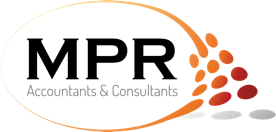30 May Top five tax penalties from a tax audit
Every Dutch company has a chance of being audited by the Dutch tax authorities. During a tax audit, the Dutch tax authorities review the entire accounting file of the company and they often find something incorrect. This article will address the top five topics in practice that distribute most penalties.
Company mobile phone
If you provide a mobile phone for your employee, it is tax free only if it is used for business purposes for more than 10%. Failing to meet this requirement, your company might get a fine and the payable wage tax regarding to this benefit for the employee. The same 10% rule applies to an internet connection. For computers, the business use must be at least 90%.
Fixed allowances for employees
Fixed allowances are for example an allowance for commuting at € 0.19 per kilometer or a fee for washing the car. As an employer, you should always be able to substantiate the expenses properly. The tax inspector might request you to indicate the allowances involved and provide receipts or proper registration records. It is legally required to keep the original receipts for at least 7 years. Many companies make copies of the receipts for in case the originals might get lost. However, please note that the copy or scan can only be used if the receipt is no longer legible.
Parking cost of a private car
When the employee drives his own car for company business purposes, the maximum tax-free allowance he is entitled to is € 0.19 per kilometer. This amount is intended to cover all car expenses including fuel expenses, tolls, parking expenses and other car related expenses. Therefore, reimbursement of parking fees is considered as wages which might be subjected to wage tax. Furthermore, allowance above € 0.19 per kilometer will also be treated as wages and taxed accordingly.
Engaging freelancer without DBA model contract/agreement
DBA, replaced VAR as of 1st of May 2016, is a new law which clarifies the relation between the self-employed professional and the client company. Under the DBA Act, the withholding of payroll tax and social security contributions by principals on the remuneration paid to their contracted parties will be waived. Only if the agreement with the contracted party has been presented to the Dutch tax authorities for review, or if one of the model contract on the website of the Dutch tax authorities has been used, the waiver is applicable. You should keep in mind that it is your responsibility to draw up such an agreement with the self-employed professional before engaging in contracts with them. If you fail to do so, you might be held liable for the risks of wage tax assessments and fines.
Work clothes allowance
There are specific regulations and requirements for different kinds of work clothing : clothing in the workplace, clothing for health and safety, clothing as a product of your own business and uniform clothing. Work clothes can be provided free of tax if the clothing is distinctive and particular to their employment. For example, when it is most appropriate to wear while working, when the clothing remains at the place where the work is performed or the clothing provided is equipped with one or more clearly visible company logo(s). Other clothing allowances are taxable on the basis that an employee can wear the clothes in private occasions. For instance, a suit provides a private benefit to the employee since it can be also used privately.
To conclude, it is always wise to look into the above mentioned five topics in order to prevent tax penalties from a tax audit by the Dutch tax authorities. For more information about these topics or if you are in need of a second opinion, please feel free to contact us.


No Comments